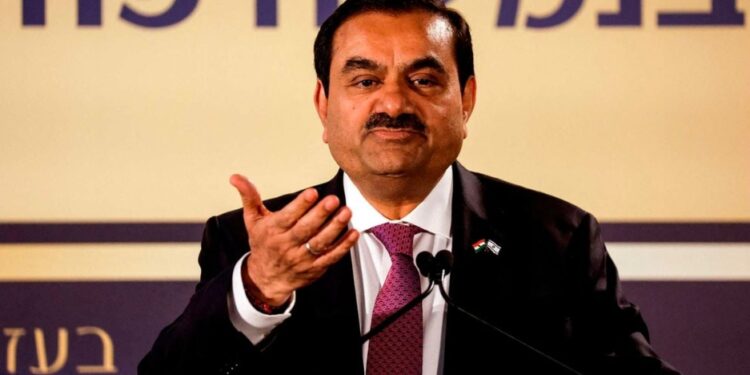Kenya-Adani compensation talks heat up as the government dives deeper into negotiations with India’s Adani Group for a clean break after scrapping a massive Sh96 billion power transmission deal last November, a move that still stings with the shadow of U.S. bribery charges hanging over the conglomerate’s top brass.
Just a month after inking the October 2024 pact for 276 kilometres of high-voltage lines snaking through the Rift Valley and coastal grids, plus shiny new substations to juice up Kenya’s flickering power network, President William Ruto pulled the plug amid explosive indictments slapping Gautam Adani and his nephew Sagar with corruption counts tied to solar scams abroad.
Now, with Energy Ministry suits huddled in virtual huddles and hushed hotel lobbies, the focus is razor-sharp: Cap any taxpayer hit below the dreaded Sh5 billion exit fee, all while eyeing Adani’s other Kenyan footprints, like the Jomo Kenyatta International Airport revamp that’s suddenly under a microscope.
The saga kicked off like a bolt from the blue – or perhaps a blackout in the making. Adani Transmission Kenya Limited, the group’s local arm, had promised to stitch together a web of 400 kV lines from Suswa to the coast, easing chronic outages that leave factories idle and fridges warm in the dead of night.
“It was billed as the lifeline for our energy dreams,” recalled a veteran grid engineer from the Kenya Electricity Transmission Company (KETRACO), speaking off-record over steaming mugs of Kahawa ya Mombasa in a Westlands café.
But when U.S. prosecutors unveiled a 24-count indictment in late October, alleging a $265 million bribe bonanza to bag Indian solar gigs, Ruto’s administration hit pause faster than a matatu dodging potholes.
“We can’t stake our grid on shadows of doubt,” Ruto declared in a State House briefing, his tone a mix of resolve and regret, as opposition voices like Okiya Omtatah cheered the U-turn while griping about the “hasty handshake” in the first place.
These Kenya-Adani compensation talks aren’t just about dollars and deadlines; they’re a high-stakes poker game where every bluff could cost the exchequer dearly. Officials are bargaining for a “mutual separation” – fancy talk for a no-fault divorce – aiming to whittle down penalties that could balloon with idle equipment rusting in Indian warehouses.
“We’re talking offsets, phased exits, maybe even repurposing some tech for local firms,” hinted a source close to the Treasury, eyes darting over classified memos. What is the Sh5 billion ceiling? It’s a red line drawn in the sand of fiscal prudence, especially with Kenya’s debt servicing gobbling 60% of revenues amid IMF watchdogs circling.
Broader ripples lap at Adani’s other ventures: The $1.5 billion airport tender, eyed for a facelift with new runways and lounges, now faces forensic audits from the Ethics and Anti-Corruption Commission, whispers of “due diligence delays” echoing through JKIA’s echoing halls.
For Adani, the Kenyan chapter’s turning bittersweet. The group’s African safari – from Ethiopian ports to Sri Lankan wind farms – hit a snag here, but execs like Vneet S. Jaain struck a diplomatic chord in a Mumbai presser: “We respect Kenya’s process; partnerships thrive on trust.”
Back home, civil society stirs: Katiba Institute’s Yvonne Omolo warned of “cronyism’s ghost”, urging Parliament to probe how the deal sailed through so swiftly pre-indictment.
In the end, as negotiators swap emails across time zones, what is the real power play? Ensuring Kenya’s grid glows without the glow of graft. Will the talks yield a tidy truce or tangle in tribunals? One thing’s clear: in the hustler’s republic, no deal’s dead till the dollars do.

















